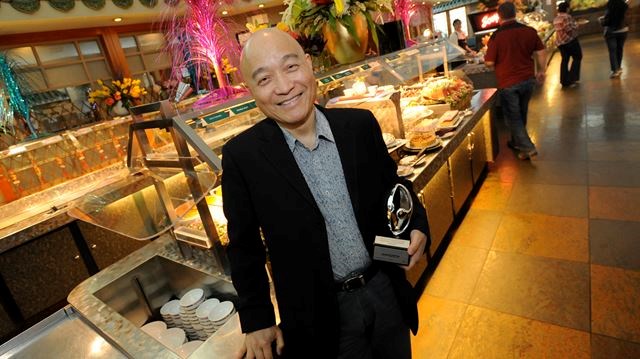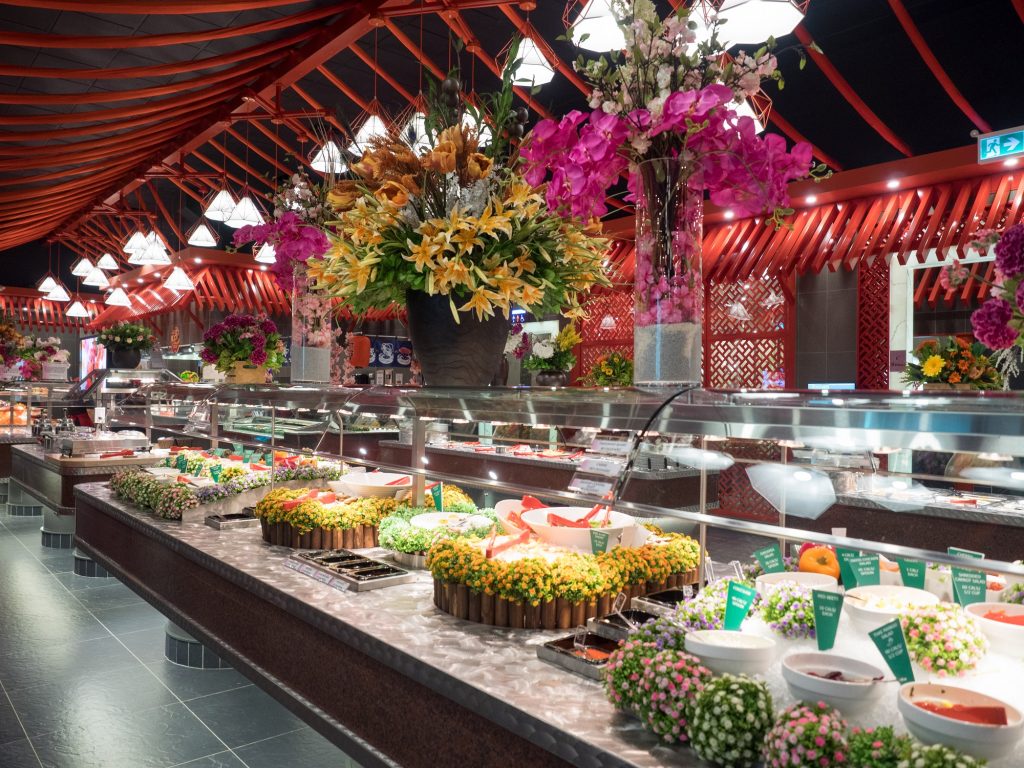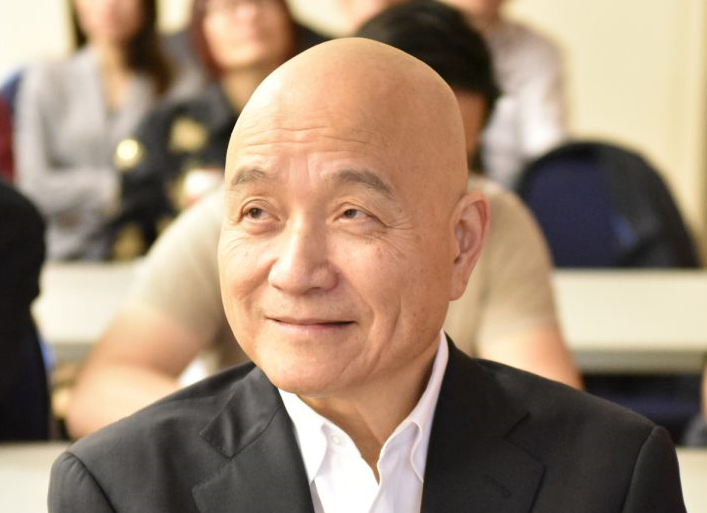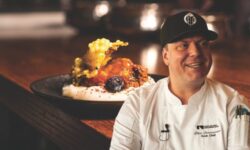The Business of Buffets with James Chiu, CEO of Mandarin Restaurants
Photo via The Legends Media
“A customer once told me, ‘I started coming here as a child; I’m now in my 40s and I’m bringing my own children here to eat’.” James Chiu, CEO of Mandarin Restaurant Franchise Corporation, laughs as he tells this story. “I said ‘Good! That’s what we like to hear!”
James, along with his brother George, sister-in-law Diana, and friend K.C. Chang founded the original Mandarin in 1979. When they began, Mandarin was a single, a la carte restaurant in Brampton serving North American-style Chinese food.
Though they started small, their insistence on freshness and attention to customer satisfaction quickly made them a local favourite. Soon, they were in the enviable position of having line-ups out the door. They expanded their space three times, but each time the demand rose to meet it. Eventually, that process led to a major change in their model. With the constraints of an a la carte menu, Chiu says, “We realized we couldn’t make every customer happy. So we switched to a buffet-style”.
The switch to the buffet model, in 1986, met that surge of customer demand then went on to create more of it. With so much choice, customers could always find something to like. “The biggest accomplishment is that more people were happy. Demand went up. People were in line for hours.” The recurrence of their original problem led to Mandarin’s next major change in 1987 – diversifying into a franchise operation.

Though Chiu explains it as more of a partnership than a true franchise. Each new restaurant has five managing partners, two chefs and three front of house. Those partners are hands-on owner/managers who split a 60% stake in the restaurant. Each is responsible for their own section and staff, and they all started as regular restaurant employees. It may seem complicated, says Chiu, but it makes for excellent teamwork. “Five partners, each with an equal share, must work together harmoniously. If they’re not happy, they can’t make customers happy.”
Mandarin’s system trains and retains capable and hardworking staff. Partners nominate current employees who are sent to the head office for two years of training. During that time, the chosen candidates work full-time at the Brampton restaurant and attend classes and seminars on all aspects of restaurant management in the evenings and on weekends. Chiu believes that, “ultimately, a winning team is a team with good service.”
Mandarin’s two year training plan builds a solid foundation in management, customer service, and teamwork. And it lets staff know that there’s an opportunity for them within the company. Though Mandarin is not immune to the sector-wide labour shortage, Chiu has found its best staff comes from employee recommendations. “Treat your staff right, and they’ll help you find the best people. We have to work harder to attract them. And once in, to motivate them. If they’re not happy, they can’t make customers happy. So we spend a lot of time training them. ‘No train, no gain’ is our motto.”
After forty years, Mandarin has 29 locations, each with approximately 100 employees. A new restaurant opens almost every year; recently, two opened in the Ottawa area. Thus far, all the restaurants are located in major urban areas. Each restaurant is roughly 14 thousand square feet, a quarter of which is the kitchen. A space that size requires an urban population to fill it. Mandarin has received interested inquiries from several countries in Europe but is proud to remain 100 per cent Canadian owned and operated.
While it started out serving North American-style Chinese food, Mandarin has adapted to customer demand over the years. “Today’s customers are more knowledgeable about food and beverages. They know more about ingredients, cooking methods and ethnic cuisines. Especially in Toronto: they like it, and want to try it. So we incorporate it into our menus.” In addition to many more traditional Chinese menu items, there are Thai and Japanese selections, along with prime rib, curries and many others.
That’s the key challenge of the buffet model when it comes to changing customer demand: keeping up with the trends while offering the items that attracted people in the first place. “A buffet must keep expanding: it cannot be reduced,” Chiu says. The buffet at today’s Mandarin serves more than three times the number of items than the original. Ensuring all the items are entirely fresh is of primary concern.

And the demand for new tastes keeps rising. With more than 30 hot dish choices, 30 more salads, and more than 40 desserts (out at any given time, as part of a rotating menu), meeting that demand takes some strategizing. Mandarin chooses to add seasonal items to the buffet on a short-term basis. At Christmas, for instance, Mandarin showcases limited-time offers like roast turkey and glazed ham. There are also special seasonal beverages, with or without alcohol.
Like many others, Chiu has tracked the rising interest in mocktails. Though Mandarin has always had mocktails on the menu, it’s not until recently that they found there were increasing in popularity with adults. Though Mandarin has expanded their juice offerings, Chiu says adults “want something more sophisticated.” This is why in addition to more choice in poured and blended non-alcoholic drinks, interesting glassware and garnishes have become part of the larger picture.
Like everyone in the industry, Mandarin has seen an increase in questions about food sensitivities and allergies. With so many items on the menu, a buffet will offer choices for most diets, and the kitchen will prepare special orders if needed. Considering each restaurant seats between 600-1000 customers daily, negotiating special needs can be a challenge. What makes it work is the attention to customer service.
If there’s one thing Chiu would like to share, it’s that training is key to creating the best service. “I’m passionate about training. Good training takes time. Modern society is all about technology and convenience, with fewer and fewer personal interactions. Our industry is different.” Chiu knows that customers aren’t just looking for a friendly face; they’re looking for some sort of relationship. “The human touch is what matters.”
Interested in more training suggestions and advice gleaned from 40 years in the business?
James Chiu will share further insights on the CEO Panel on the Main Stage at RC Show 2020. This year’s theme is Diversify & Thrive. The hospitality event of the year will take place at the Enercare Centre in Toronto, from March 1-3, 2020.










I am an Indian girl. I have been working there from about last two years. I found only this palace in Canada where you can work and eat freely. James, all managers are the best human beings loaded with professional etiquettes. Not only the workers but the customers are always well come warmly. Everybody who go there can find their own satisfaction at all level. Food quality is 100%. I am sooo glad to be a part of this restaurant.
Do you have in your beverage department BUBBLE TEA?
I am. So proud to know James Chiu,he is a wonderful human being and passionate about customer service.If you have never experienced his restaurants,you are in for a real treat.His staff are all fantastic andcompassionate about serving customers. Please visit any of his restaurants and see for yourself,you will never be disappointed. Larry Dupuis and Debbie Browning.
I posted a comment,where is it.Does it take a day or so to be published?